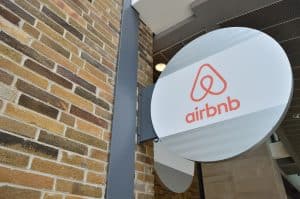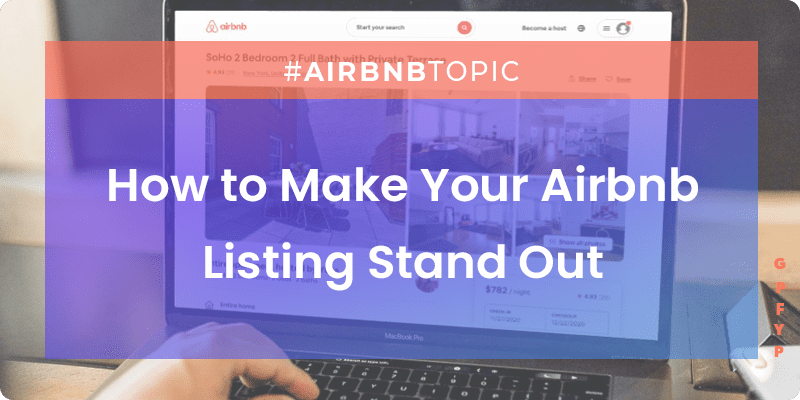Is it Worth Having a Website for Your Airbnb Property?
In today’s digital age, where online presence is paramount, many Airbnb hosts wonder if it’s worth having a dedicated website for their property. While Airbnb provides a platform for hosts to list their properties and connect with travelers, having a standalone website can offer numerous benefits. In this article, we’ll explore the advantages and disadvantages of creating a website for your Airbnb property and help you make an informed decision.
Advantages of Having a Website for Your Airbnb Property
1. Enhanced Branding and Control
One of the primary advantages of having a dedicated website for your Airbnb property is the ability to establish a unique brand identity. You can design the website to reflect the personality and style of your property, creating a memorable experience for potential guests. This level of control over branding is not possible on Airbnb’s platform alone.

2. Direct Booking
A dedicated website allows you to accept direct bookings from guests. This means you won’t have to pay the service fees associated with Airbnb bookings, potentially increasing your revenue. Moreover, you can implement your own booking and cancellation policies, providing more flexibility.
3. Improved SEO and Visibility
Having a website opens up opportunities for better search engine optimization (SEO). By optimizing your website with relevant keywords and content, you can improve your property’s visibility on search engines like Google. This can help you attract more guests independently of Airbnb’s platform.
4. Enhanced Guest Experience
With your website, you can provide detailed information about your property, including high-quality images, floor plans, and virtual tours. This comprehensive information can enhance the guest experience and set clear expectations, leading to more satisfied guests and positive reviews.
5. Direct Communication with Guests
Maintaining your own website allows you to communicate directly with potential guests before they book. You can address their questions and concerns promptly, building trust and increasing the likelihood of bookings. Learn how to create a website for your airbnb here.
Considerations Before Creating Your Airbnb Property Website
1. Cost and Maintenance
Building and maintaining a website does come with costs. You’ll need to purchase a domain name, pay for hosting, and possibly invest in web design services. Additionally, you’ll need to regularly update your website with current information and images to keep it appealing to potential guests.

2. Competition
While having a website can set you apart from some Airbnb hosts, it also means competing with other vacation rental websites and platforms. You’ll need to invest in marketing and SEO efforts to ensure your website gets noticed.
3. Integration with Airbnb
To avoid double bookings and ensure a seamless experience for guests, you’ll need to sync your website with your Airbnb calendar. This integration can be complex and may require technical knowledge or third-party services.
4. Data Privacy and Security
Managing a website means handling guest data securely, including personal information and payment details. You’ll need to implement robust security measures to protect both your guests and your business.
How to Create Your Airbnb Property Website
Creating a website for your Airbnb property can be a straightforward process if you follow these steps:
1. Choose a Domain Name
Select a domain name that reflects your property or brand. Keep it simple, easy to remember, and relevant to your location or theme.
2. Select a Hosting Provider
Choose a reliable hosting provider to host your website. Popular options include Bluehost, SiteGround, and HostGator.

3. Design Your Website
You can either hire a professional web designer or use website builders like WordPress, Wix, or Squarespace to create your site. Ensure your design aligns with your property’s branding and provides a user-friendly experience.
4. Optimize for SEO
Research relevant keywords and optimize your website’s content to improve its search engine ranking. Regularly update your content to keep it fresh and relevant.
5. Implement Booking and Payment Systems
Integrate booking and payment systems to accept reservations and payments directly on your website. Ensure these systems are secure and user-friendly.
6. Sync with Airbnb Calendar
Use Airbnb’s integration options or third-party tools to sync your website’s booking calendar with your Airbnb listing to avoid double bookings.
7. Promote Your Website
Market your website through various channels, such as social media, email marketing, and online advertising, to attract potential guests.
Conclusion: Is it Worth It?

In the world of Airbnb hosting, having a dedicated website for your property can be a valuable asset. It provides you with greater control over branding, direct booking capabilities, improved SEO, and enhanced guest experiences. However, it also comes with costs, competition, and the need for diligent maintenance.
Ultimately, the decision to create a website for your Airbnb property depends on your goals and resources. If you’re willing to invest time and effort into building and maintaining a website, it can be a worthwhile endeavor that enhances your property’s visibility and profitability. However, if you prefer a more hands-off approach, Airbnb’s platform may suffice for your hosting needs. https://www.airbnb.com.au/help/article/1336





